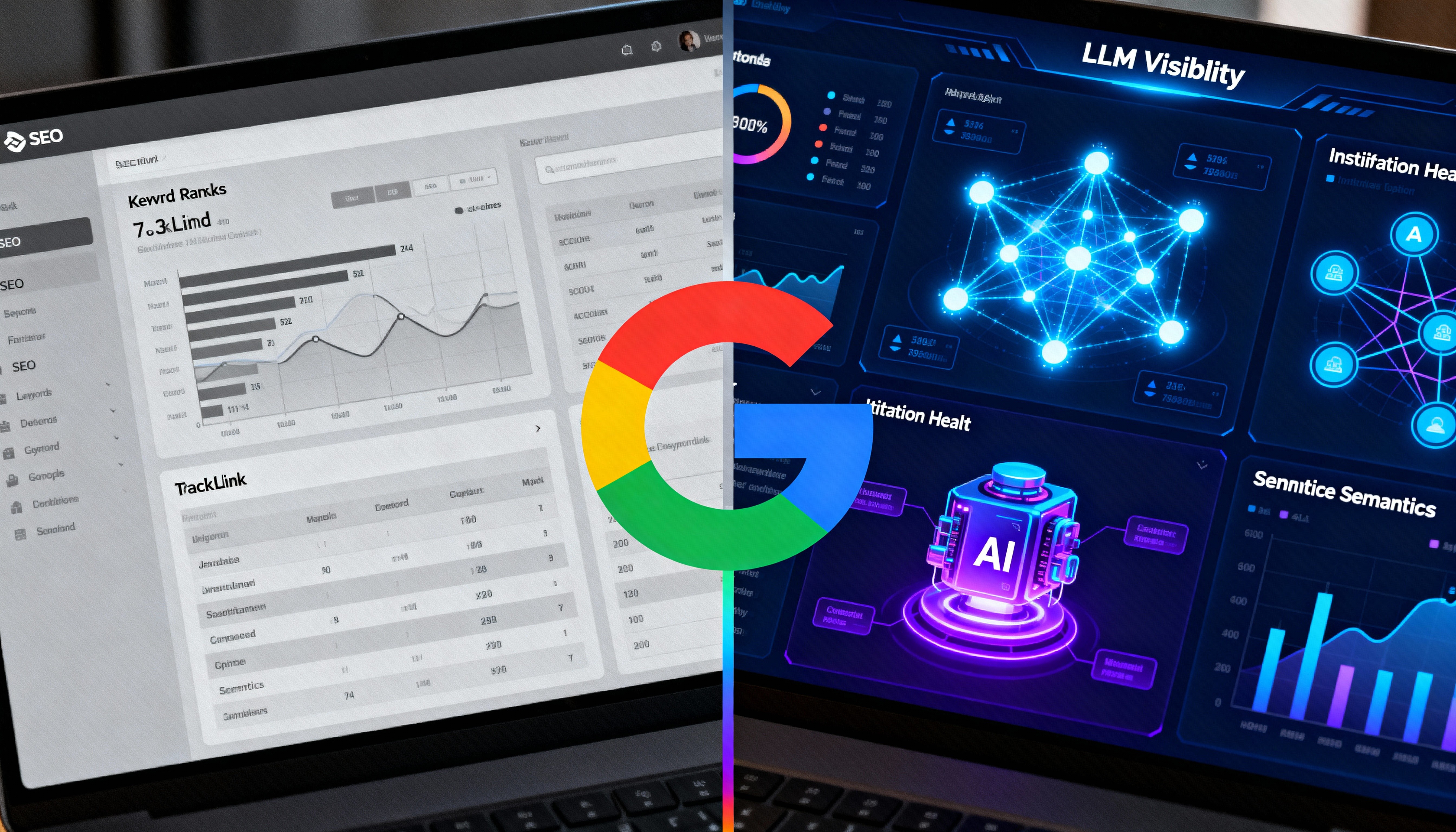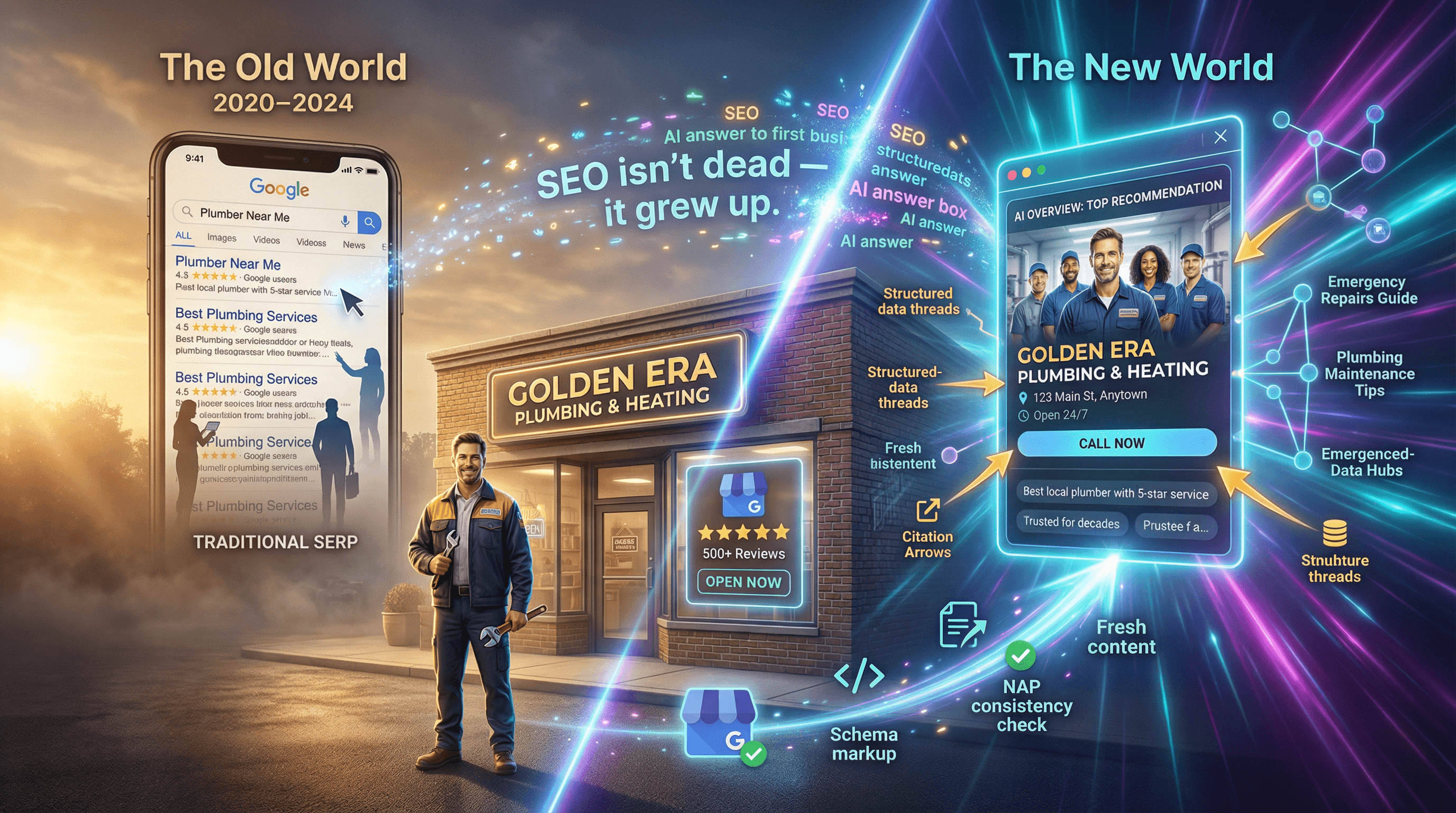Media Buying
Meta's Andromeda update revolutionizes meta ads with AI for better targeting & optimization. Learn what you need to know.
You know, running ads on Meta platforms like Facebook and Instagram used to feel a bit more straightforward. You'd pick your audience, craft your message, and tweak things based on what seemed to be working. But lately, it feels like the ground has shifted. Meta's new Andromeda algorithm update is a big part of that change. It's this complex AI system that's really changing how ads are shown to people. So, what does this actually mean for us advertisers? Let's break it down.
Key Takeaways
The Andromeda update is Meta's new AI-powered system for ad delivery, aiming to improve personalization and ad performance.
It uses advanced machine learning and hardware like the NVIDIA Grace Hopper Superchip to handle a massive volume of ad creatives efficiently.
Andromeda moves away from hyper-specific audience segmentation towards a more generalized approach, relying on AI to match ads to users.
Advertisers should focus on diversifying creative content and consolidating ad sets to work with the new algorithm's strengths.
This update emphasizes automation and AI-driven optimization, meaning manual control is less effective than embracing Meta's automated tools.
Introduction to the Meta Andromeda Algorithm Update

Meta has rolled out a significant new system called Andromeda, which is set to change how ads are delivered across its platforms. This isn't just a minor tweak; it's a major overhaul focused on using artificial intelligence to make ad delivery smarter and more effective. The goal is to provide a better experience for both users and advertisers.
Think of Andromeda as the engine that sorts through the massive library of ads available. Before this update, the process was more segmented, with different systems handling various parts of ad delivery. Andromeda aims to bring these pieces together, using AI to figure out which ads are most relevant to show at any given moment. This new approach processes trillions of data points, allowing for a much more nuanced understanding of user preferences and ad performance. It's designed to handle the ever-increasing volume of ad creatives, especially with the rise of tools like Advantage+ and generative AI. This means more personalized ads and potentially better results for businesses running campaigns on Facebook and Instagram.
This Algorithm Update is built on advanced machine learning and works closely with new hardware to manage the complexity. It's a big step forward in how Meta uses AI to optimize ad delivery, aiming for improved efficiency and a higher return on ad spend for advertisers. Understanding how Andromeda works is key to adapting your advertising strategies for the future.
What Is the Meta Andromeda Algorithm?
So, what exactly is this Andromeda thing Meta's been talking about? Basically, it's a new, pretty advanced machine learning system they've built. Think of it as the engine that helps decide which ads you actually see when you're scrolling through Facebook or Instagram. It's designed to make ad delivery much smarter and more effective.
Before Andromeda, Meta's systems were a bit clunky. They had separate stages for figuring out ads, and a lot of manual rules. This made it hard to really optimize everything from start to finish. Plus, handling the sheer volume of ads out there was a huge challenge, often slowing things down and making it tough to use the latest AI tricks. It was like trying to sort a million pieces of mail by hand – inefficient and prone to errors.
Andromeda changes that. It uses deep neural networks, which are a type of AI, and works closely with powerful hardware like NVIDIA's Grace Hopper Superchip and Meta's own MTIA chips. This combination allows it to process way more information and learn more complex patterns. The goal is to improve how ads are found and shown, aiming for a big jump in value for both advertisers and users. It's all about getting the right ad to the right person at the right time, making the whole experience better. You can find more details about its capabilities on the Meta AI blog.
Here’s a quick rundown of what makes it tick:
Advanced AI Models: Uses deep neural networks to understand user behavior and ad performance better.
Hardware Co-design: Works with specialized chips to speed up processing and improve efficiency.
Scalability: Built to handle the massive and growing number of ads available.
Personalization: Aims to deliver more relevant ads to individual users.
The system is built to handle the massive growth in ad creatives, especially with tools like Advantage+ that automatically generate more ad options. Andromeda helps manage this explosion of content efficiently.
Ultimately, Andromeda is Meta's way of pushing the boundaries in ad technology, making the ad system more efficient, personalized, and capable of handling the future of digital advertising. It's a big step towards making ads work better for everyone involved.
Key Features of the Andromeda Update
So, what exactly makes the Andromeda update a big deal for Meta ads? It's all about making the ad system smarter and more efficient, especially with all the new AI tools popping up.
One of the main things Andromeda does is improve how ads are found and shown to people. Think of it like a super-organized library for ads. Instead of just grabbing any book, it uses a smart, layered system to quickly find the exact book (or ad) that someone might be interested in. This means less wasted time searching and a better chance of showing you something relevant.
Here are some of the standout features:
Smarter Ad Retrieval: Andromeda uses advanced deep neural networks, working closely with powerful hardware like the NVIDIA Grace Hopper Superchip. This helps it handle a massive and growing number of ad creatives without slowing down. It's designed to be really fast and efficient, even when dealing with tons of options.
Hierarchical Indexing: This is a fancy way of saying ads are organized in a structured, multi-level way. Instead of checking every single ad, the system can focus on the most promising ones first. This cuts down on the work needed to find the right ad, making the whole process quicker and more accurate.
Model Elasticity: The system can adjust its complexity on the fly. If there are more resources available, it can use more complex models to find even better matches. If resources are tighter, it can scale back without losing too much performance. This flexibility is key to handling the huge scale of Meta's ad system.
AI Integration: Andromeda is built to work hand-in-hand with AI, including generative AI (GenAI) tools. This means advertisers can more easily use these new creative tools, and the system can better manage and optimize the ads produced by them, potentially leading to better results.
Basically, Andromeda is Meta's answer to making sure their ad system can keep up with the rapid growth of AI and new ad formats. It's all about using smart technology to find the right ad for the right person, faster and more efficiently than before.
How The Andromeda Algorithm Impacts Meta Ads
So, Meta's rolled out this new thing called Andromeda, and it's a pretty big deal for anyone running ads on Facebook or Instagram. Basically, it's a fancy new AI system designed to make your ads work better. It's all about getting the right ad in front of the right person at the right time, which sounds simple, but the tech behind it is pretty complex.
Changes to Ad Targeting
Before Andromeda, targeting felt a bit like shooting in the dark sometimes. You'd set up your audiences, cross your fingers, and hope for the best. Andromeda changes that by using machine learning to analyze ad performance and user behavior in real-time. This means it can move beyond the basic targeting options Meta used to offer and get much more specific. It's like upgrading from a blurry map to a high-definition GPS. The goal is to deliver ads that are actually relevant to people, not just ads that fit a demographic box. This could mean seeing ads for things you've actually looked at or shown interest in, making the whole experience less annoying for users and more effective for advertisers.
New Optimization Capabilities
This is where Andromeda really shines. It's built to handle a massive amount of ad creatives – think of all the different versions of ads businesses are creating, especially with new AI tools that can generate images and text. Andromeda uses a smart indexing system to manage all these ads efficiently. This allows Meta's system to pick the absolute best ad for each individual user. We're seeing early signs that this can lead to better results, like a noticeable increase in return on ad spend (ROAS) for advertisers who've adopted these new AI-driven features. It's about making sure the ad budget is spent on ads that are most likely to perform.
Effect on Ad Placements and Reach
With Andromeda optimizing which ads get shown to whom, you might see shifts in where your ads appear and who they reach. Because the system is constantly learning and adjusting, it can identify placements and audiences that might have been overlooked before. This could mean your ads reach new groups of people who are more likely to be interested in what you're selling. It also means that the ads you do see are more likely to be ones you'll actually engage with, rather than just generic ads that don't quite fit. The system is designed to scale up, meaning it can handle more ads and more data, which should lead to a broader, yet more targeted, reach over time.
The core idea is to simplify the backend for Meta while making the frontend – the ads people see – much more effective. By using advanced AI and specialized hardware, they're trying to make the ad system smarter and more efficient, which should benefit everyone involved.
Best Practices for Advertisers After Andromeda
So, Meta's Andromeda update is here, and it's a pretty big deal for how ads get shown. It's all about making things smarter and more efficient behind the scenes. But what does this actually mean for you, the advertiser? How can you make sure your campaigns are still hitting the mark, or even doing better?
Ad Creative Strategies
Think of Andromeda as a super-smart assistant that loves options. The more creative assets you give it to play with, the better it can figure out what actually grabs people's attention. Don't just stick to one image and one headline. Mix it up!
Upload Multiple Creative Variations: This is probably the most important thing. Provide a variety of images, videos, headlines, and calls-to-action. The more combinations Andromeda can test, the more likely it is to find a winner for different people.
Use Advantage+ Creative: Let Meta's tools do some of the heavy lifting. Advantage+ Creative can automatically test different combinations of your ad components to see what performs best for each individual viewer.
Consider Generative AI (GenAI) Tools: If you're not already, start exploring tools that can help you create more ad variations. Early reports suggest a noticeable bump in conversions from using these tools.
The key here is to give the algorithm a rich palette of creative elements to work with. It's designed to learn and adapt, so feeding it more data points through diverse creatives will help it optimize more effectively.
Budget Allocation Tips
With Andromeda handling more of the optimization, you might find your budget working harder. It's designed to identify high-converting audiences and patterns, meaning your spend should naturally shift towards what's working.
Widen Your Targeting Slightly: While precise targeting has its place, Andromeda can actually help you discover new, high-converting audiences you might have missed. Try broadening your interest and demographic settings a bit. You can still provide some signals, but allow the AI to expand beyond them using features like Advantage Detailed Targeting.
Monitor Performance, Not Just Inputs: Instead of obsessing over every single targeting parameter you set, focus on the overall campaign performance. Andromeda is constantly scanning and adjusting, so trust the process while keeping an eye on your key metrics.
Leverage Automated Features: Tools like Advantage+ placements and budget optimization are designed to work hand-in-hand with Andromeda. Let them help you allocate resources where they're most likely to yield results.
It's a shift from micromanaging every setting to providing the system with the right inputs and letting its intelligence do the heavy lifting. This means you can spend less time tweaking and more time focusing on the bigger picture of your advertising strategy.
Frequently Asked Questions About Andromeda
Got questions about the new Andromeda update? You're not alone. This is a pretty big shift for how Meta handles ads, so let's break down some common queries.
What exactly is Andromeda?
Think of Andromeda as Meta's super-smart system for figuring out which ads to show you. It uses advanced AI, including fancy neural networks and special hardware, to make ads more relevant to users and more effective for advertisers. It's designed to handle a massive amount of ad content and make sure the right ads get seen by the right people, improving overall ad performance and user experience.
How does Andromeda change ad targeting?
Andromeda allows for much deeper personalization. It can capture complex relationships between what people are interested in and the products or services being advertised. This means ads should feel more tailored to individual preferences, potentially leading to better results for advertisers and less irrelevant content for users.
Will this affect my ad spend or budget?
While Andromeda aims to improve return on ad spend (ROAS), it's not a magic bullet for budgets. Advertisers should still focus on smart budget allocation and creative strategies. The system's efficiency might mean your budget goes further, but understanding how it optimizes is key. For instance, businesses using image generation tools alongside these updates have seen positive conversion increases.
What are the main benefits for advertisers?
Advertisers can expect improved ad performance and efficiency. Andromeda's design helps scale retrieval models, meaning more ads can be processed and matched effectively. This also streamlines AI development, making it easier for Meta to roll out future improvements. It's all about making the ad system work better for everyone involved.
Is Andromeda related to Advantage+?
Yes, Andromeda is designed to work with and maximize the benefits of Meta's existing automation tools like Advantage+. It helps scale the volume of ads available for these automated systems, potentially boosting their effectiveness even further. Many advertisers have already seen significant ROAS increases by adopting Advantage+ features.
When did Andromeda start impacting ads?
The Andromeda algorithm update was announced on April 22nd, 2025, and began affecting advertisers globally starting in July. This update is considered a major change, comparable to the impact of iOS 14.5 on Facebook advertising.
Conclusion: Preparing for the Future of Meta Advertising
Taking a step back, it’s clear that the Meta Andromeda Algorithm Update has changed how advertisers approach campaign management. Marketers aren’t just media buyers anymore—they’re strategic input designers, shaping the data and creative that the AI learns from. If you haven’t adjusted your approach, now’s the right time.
As the platform automates more of the heavy lifting, advertisers should focus energy on the following:
Make sure creative assets are sharp and your messaging is on point.
Regularly review the inputs—copy, visual language, and brand guidelines—you provide to the algorithm.
Build a habit of checking the AI’s outputs, not just trusting them blindly.
Balance campaign structure, creative diversity, and data input for smarter outcomes.
The more you understand how Meta’s algorithm shifts work, the more prepared you’ll be to grow with these continued changes in automation and targeting.
One thing standing out for 2025? Creative and campaign fundamentals matter more than ever. Approaches like clean account structure, smart targeting, and data-driven tweaks remain key, just as highlighted in proven methods for mastering fundamental strategies on Meta Ads now.
The future looks automated but not hands-off. Stay curious, adapt often, and keep testing—because the best Meta advertisers will be the ones ready to change along with the algorithm itself.
Wrapping Up: What Andromeda Means for Your Ads
So, that's the lowdown on Meta's Andromeda. It's a pretty big shift, moving towards AI doing a lot of the heavy lifting in ad delivery and personalization. For advertisers, this means things are changing – the old ways of super-specific audience segmentation might not cut it anymore. Instead, it seems like focusing on good creative and letting the system figure out who sees it is the way to go. It's all about making ads more relevant and hopefully, getting better results. Keep an eye on how this develops, because it's definitely shaping the future of advertising on Meta's platforms.
Frequently Asked Questions
What exactly is the Andromeda update from Meta?
Andromeda is a new smart system from Meta that uses artificial intelligence (AI) to make ads on Facebook and Instagram work better. It helps show the right ads to the right people at the right time by looking at lots of information really quickly.
How does Andromeda change how my ads are shown?
Andromeda helps Meta's system understand people better and show them ads they're more likely to like. This means your ads might reach new people who are interested, even if you didn't specifically target them. It also helps make sure your ads are shown in the best places to get noticed.
Do I need to change my ad campaigns because of Andromeda?
Yes, it's a good idea to adjust. Instead of creating tons of super-specific ad groups, focus on making great ads and putting them together in fewer, broader ad sets. Let Andromeda's AI do the heavy lifting of matching your ads to the right people.
Will Andromeda help my ads perform better?
Meta believes Andromeda will improve how well your ads do, meaning you might get more results, like sales or leads, for the money you spend. By showing more relevant ads, it aims to boost how much money advertisers make.
Is it true that AI is now making ads for me?
Meta is using AI, like its GenAI tools, to help create ad ideas and variations. Andromeda uses this to find the best combinations of ads and audiences. While it helps create and show ads, you still guide the overall strategy and provide the core message.
What's the best way to prepare my ads for Andromeda?
Focus on creating really good and varied ad pictures and videos. Also, make sure your campaign structure is simple, with fewer ad sets that hold many different ad ideas. Providing clear data about what works helps the AI learn faster.
























































































